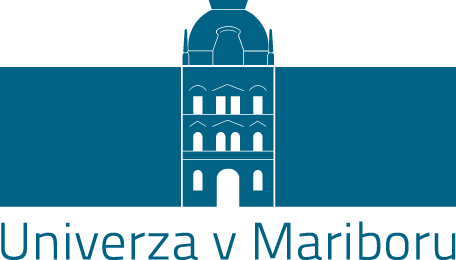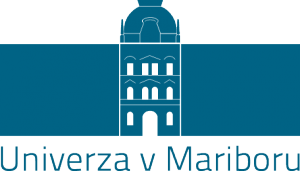ECERS je septembra 1989 ustanovila Univerza v Mariboru; delo je začel 1.januarja 1990. To je majhen, a zelo fleksibilen raziskovalni inštitut, ki ga sestavljajo trije redni raziskovalci. Skrbimo pa tudi za vzgojo mladih raziskovalcev. Pri realizaciji programa v različnih oblikah – od konzultacij konkretnih dejavnosti – sodeluje še triintrideset članov mednarodnega znanstvenega sveta, uglednih strokovnjakov iz raznih evropskih držav. Število pri realizaciji programa angažiranih raziskovalcev se oblikuje glede na razpoložljiva sredstva za posamezne projekte.
Predmet raziskovalne dejavnosti ECERS-a so naslednja vprašanja:
- Politični, etnični, kulturni in jezikovni vidiki evropske integracije v kontekstu širjenja EU in s poudarkom na položaju slovenskega naroda, slovenskih manjšin in etničnih skupnosti v Sloveniji.
- Nacionalizem, etnična gibanja, medetnični odnosi in varstvo manjšin s poudarkom na jugovzhodni Evropi.
- Vloga verskih skupnosti pri utrjevanju demokracije, človekovih pravic in verskih svoboščin, varstvu manjšin ter pri širjenju sprave in sodelovanja med narodi v jugovzhodni Evropi.
- Regionalizem in evropska integracija, mednarodne regionalne organizacije, čezmejno sodelovanje (vključujoč »evroregije«), posebej v kontekstu širjenja EU in s poudarkom na povezovanju Slovenije z sosednimi državami.
- Dejavnost mednarodnih državnih in nevladnih institucij in organizacij na delovnem področju ECERS-a, posebej možnosti za strukturno evropsko povezovanje Slovenije.
- Skupna zunanja in varnostna politika EU in posebej izvajanje te politike v odnosu do jugovzhodne Evrope.
- Položaj posameznika v mednarodnem pravu s poudarkom na mednarodnih postopkih za varstvo človekovih pravic in pravic pripadnikov narodnostnih manjšin.
- Vloga civilne družbe pri uveljavljanju demokracije in sodelovanja državljanov v procesih odločanja.
- Ohranjanje in zaščita kulturne dediščine etničnih in verskih manjšin.
Objave: Člani ožje raziskovalne skupine ECERS-a so v zadnjih petih letih objavili (v glavnem v tujini) skupaj petindvajset monografij in drugih zaključenih del, triintrideset znanstvenih člankov, šestintrideset objavljenih predavanj na konferencah in enajst poglavij oz. samostojnih sestavkov v knjigi.
Mednarodno sodelovanje: ECERS ima redne delovne stike s trinajstimi univerzami in raziskovalnimi organizacijami oziroma z več kot štiridesetimi raziskovalci v tujini. Pri uresničevanju svojih programov sodeluje z mednarodnimi meddržavnimi in nevladnimi organizacijami, kot so Svet Evrope, Evropska unija, OVSE, FUEN, INTEREG idr.
ECERS tesno sodeluje zlasti z mednarodno nevladno organizacijo ISCOMET (International Scientific Conference Minorities for Europe of Tomorrow) in z mednarodno MFD ustanovo za pospeševanje varstva kulturne dediščine etničnih in verskih manjšin v jugovzhodni Evropi (obe s sedežem v Mariboru) ter z MFD mednarodnim združenjem za pospeševanje varstva kulturne dediščine etničnih in verskih manjšin v JVE (sedež v Luxembourgu). Izpostava MFD ustanove bo v kratkem ustanovljena tudi v Beogradu. ISCOMET združuje okrog 150 članov iz vseh evropskih držav ter iz ZDA in Izraela in od leta 1992 uživa posvetovalni status pri Svetu Evrope. Septembra 1998 je bil na podlagi sklepa pristojne komisije Sveta Evrope vpisan tudi v spisek redkih nevladnih organizacij, ki imajo pravico vlagati kolektivne pritožbe v primeru kršitev Evropske socialne listine.
ENGLISH version
ECERS was founded in 1989 by the University of Maribor, Slovenia. It is a small, however, very flexible research institute. Regularly involved in the realisation of its programme are thirty-three members of the international scientific council, outstanding experts from various European countries, who co-operate in different forms – from consultations to concrete activities. The number of staff involved in the realisation of a certain programme, varies according to the means available for single projects.
ECERS research activities are focused on the following issues:
- Political, ethnic, cultural and linguistic aspects of the European integration in the context of the EU enlargement and with emphasis on the position of the Slovenian nation, Slovenian minorities and ethnic communities in Slovenia;
- Nationalism, ethnic movements, inter – ethnic relations and protection of minorities with emphasis on South East Europe;
- The role of religious communities in enhancing of democracy, human rights and religious freedoms, protection of minorities and spreading of reconciliation and cooperation between the nations in South East Europe;
- Regionalism and European integration, international regional organisations, cross-border cooperation (including “Euroregions”), especially in the context of the EU enlargement, and with emphasis on the cooperation of Slovenia with neighbouring countries;
- The activities of international governmental and non-governmental institutions and organisations from the working field of ECERS, especially possibilities for structural European cooperation of Slovenia;
- Common foreign and security policy of the EU and especially the implementation of this policy in relation to the South East Europe;
- The status of an individual in international law with emphasis on international procedures for protection of human rights and rights of members of ethnic minorities;
- The role of the civil society in enhancement of democracy and co-operation of citizens in the processes of decision-making in the countries “in transition.
References:
Members of the narrow research group of ECERS have in the last years published (mainly in foreign countries) altogether twenty-five monographic units and other concluded works, thirty-three scientific articles, thirty-six published lectures at conferences and eleven chapters or independent compositions in books.
International cooperation:
ECERS has regular contacts with several universities and research organisations across the whole Europe. In the realisation of its programmes ECERS cooperates with international inter-governmental and non-governmental organisations, like the Council of Europe, European Union, OSCE, FUEN, INTEREG etc.
ECERS closely cooperates especially with the international non-governmental organisation ISCOMET (International Scientific Conference Minorities for Europe of Tomorrow), with the international MFD Foundation for fostering the protection of cultural heritage of ethnic and religious minorities in South East Europe (both with the seat in Maribor) and with the MFD International Association for fostering the protection of cultural heritage of ethnic and religious minorities in South East Europe (with the seat in Luxembourg).

